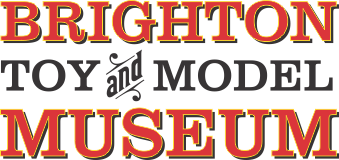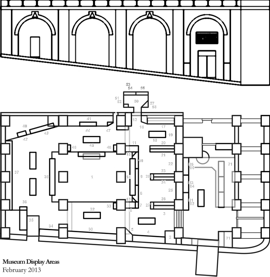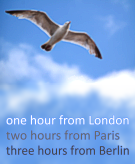Phaeton clockwork model car, 1902 (Bing): Difference between revisions
From The Brighton Toy and Model Index
Jump to navigationJump to search
m (BTMM Eric moved page Phaeton clockwork model car (Bing) to Phaeton clockwork model car, 1902 (Bing)) |
No edit summary |
||
| (5 intermediate revisions by the same user not shown) | |||
| Line 1: | Line 1: | ||
{{Exhibit|Loc=84|Pic= | {{Exhibit|Loc=84|Pic=Phaeton_clockwork_model_car,_1902_(Bing).jpg|Date1=1902}} | ||
A restored [[clockwork]] '''"Phaeton"''', the largest model car in [[Bing]]'s range in 1902. | A restored [[clockwork]] '''"Phaeton"''', the largest model car in [[Bing]]'s range in 1902. | ||
Pressland's book lists it as 34cm long and 19cm wide, with automatic steering and a bellows-operated horn. | Pressland's book lists it as 34cm long and 19cm wide, with automatic steering and a bellows-operated horn. | ||
{{BigPic|Phaeton_clockwork_model_car,_1902_(Bing).jpg|Bing Phaeton clockwork car, 1902}} | |||
==Phaeton== | |||
The term "Phaeton" originally referred to a high, lightweight, highly-sprung, large-wheeled horsedrawn carriages, and was then adopted by some early car manufacturers to refer to their open-top touring cars designed to be used for recreational driving. The side profile and side seat shape of phaetons was often highly reminiscent of the shapes used by the horsedrawn Phaeton carriages. | |||
==References== | ==References== | ||
* David Pressland, '''The Art of the Tin Toy''', (New Cavendish Books, 1976) ISBN 9780904568042 ''pp.100'' | |||
* | {{links}} | ||
* [https://en.wikipedia.org/wiki/Phaeton_%28carriage%29 Phaeton (carriage) (wikipedia.org)] | |||
{{BingCar}} | {{BingCar}} | ||
[[Category:Clockwork]] | [[Category:Clockwork]] | ||
Latest revision as of 00:28, 25 April 2016
| Exhibit |
|---|
Phaeton clockwork model car, 1902 (Bing) (i) (i)
|
 |
| location: |
|
Arch One , Area 84 Glamour of Brighton 1902 |
A restored clockwork "Phaeton", the largest model car in Bing's range in 1902.
Pressland's book lists it as 34cm long and 19cm wide, with automatic steering and a bellows-operated horn.
Phaeton
The term "Phaeton" originally referred to a high, lightweight, highly-sprung, large-wheeled horsedrawn carriages, and was then adopted by some early car manufacturers to refer to their open-top touring cars designed to be used for recreational driving. The side profile and side seat shape of phaetons was often highly reminiscent of the shapes used by the horsedrawn Phaeton carriages.
References
- David Pressland, The Art of the Tin Toy, (New Cavendish Books, 1976) ISBN 9780904568042 pp.100



